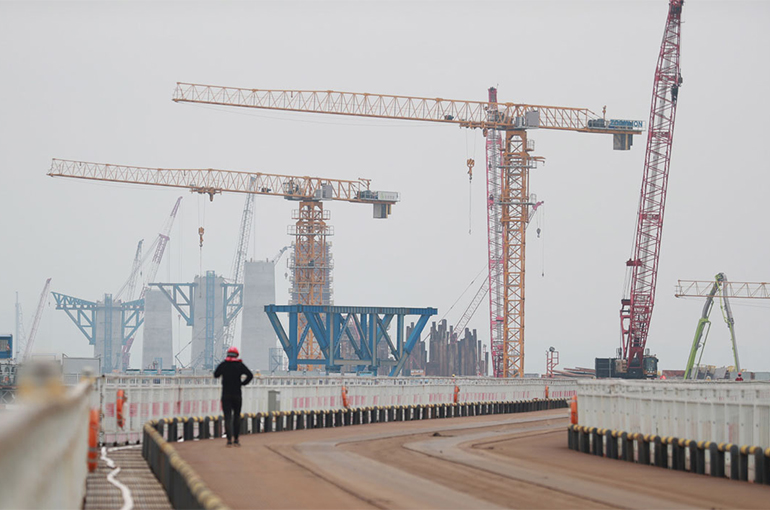 Chinese Spending on Infrastructure to Slow in 2024, Analysts Say
Chinese Spending on Infrastructure to Slow in 2024, Analysts Say(Yicai) Jan. 22 -- China's investment in roads, rail lines, and bridges could increase at a slower rate this year as the country's economic growth is becoming less dependent on such boosters, according to analysts.
Infrastructure investment could rise by about 5.5 percent in 2024, down a little on last year, Wang Qing, chief macro analyst of Golden Credit Rating, told Yicai. But the central government’s budget deficit ratio and quota for special bonds sales are still expected to increase, Wang added.
Last year, fixed-asset investment rose 3 percent, with increases in manufacturing and infrastructure of 6.5 percent and 5.9 percent, respectively, while that in real estate development sank 9.6 percent, according to the official data.Wang pointed out that infrastructure investment actually jumped by about 9 percent if sliding producer prices are factored out. The actual growth rate was higher than that of 2022, he added.
Spending on infrastructure is still an important driver of economic growth, according to Luo Zhiheng, chief economist of Yuekai Securities. Within the framework of existing fiscal policy, the government should consider issuing long-maturity treasury bonds for construction to hedge against a decline in demand while ensuring macroeconomic stability, Luo added.
The focus should now be on bolstering efficiency, cutting investment in highways and railroads, and increasing spending in new high-demand areas such as digital transformation and green development, Wang added.
Against the backdrop of slowing growth in local government fiscal revenue and the limited ability of these authorities to issue bonds, the central government should assume greater responsibility as it has more room to borrow along with lower costs, Luo noted.
Editors: Dou Shicong, Emmi Laine